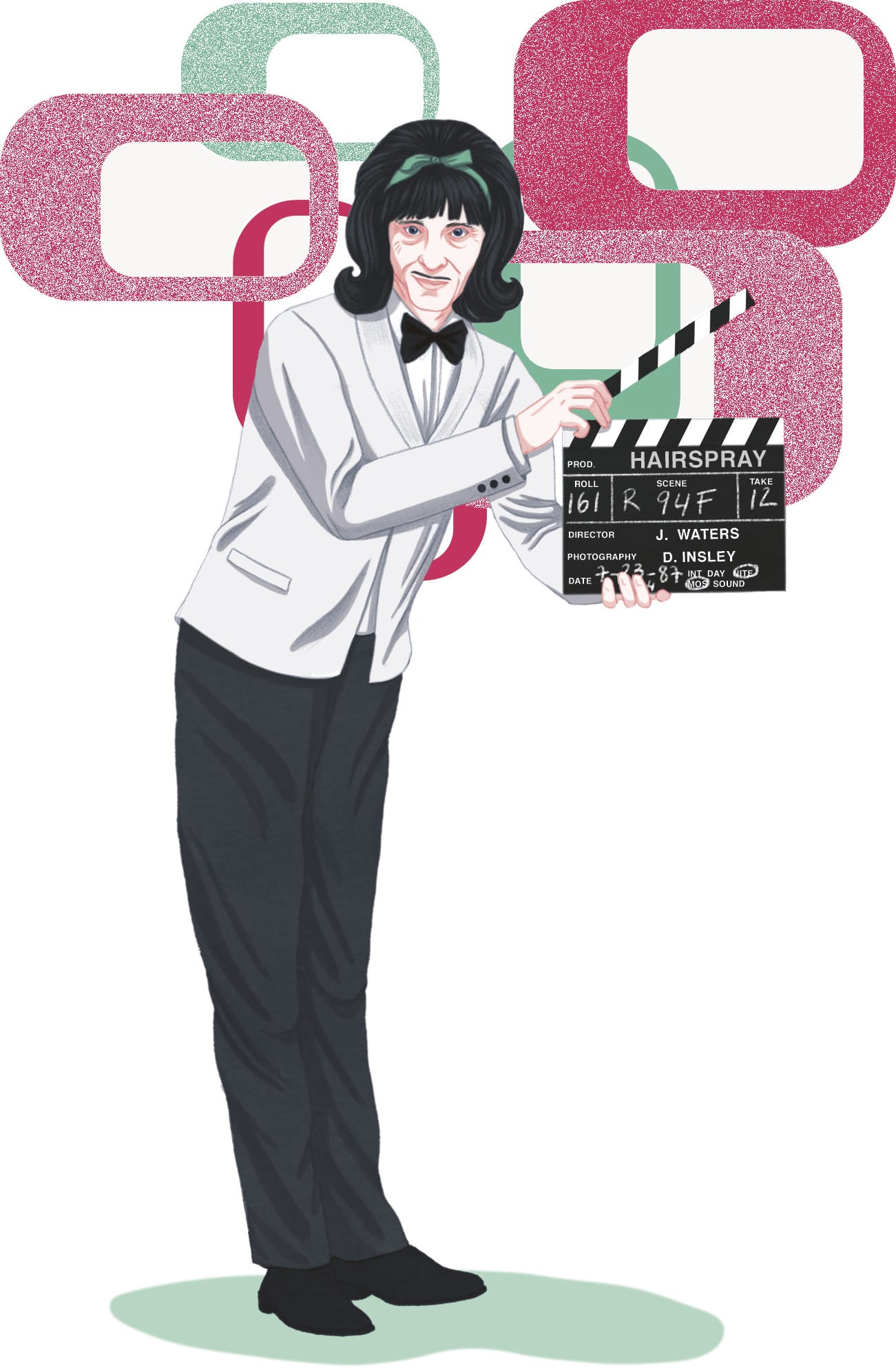JOHN WATERS (1946)
 KING OF KITSCH
KING OF KITSCH
There is good and bad taste, and then there’s John Waters. The multi-hyphenate artist has transcended his career as a filmmaker to become the brand of his unique perspective on the world.
In his book Shock Value, Waters states: ‘To understand bad taste one must have very good taste’. The line between the two is one that Waters has crossed throughout his career, so much so that for many people there are two John Waters. Creeping ever closer to mainstream tastes is the director of Hairspray (1988), Cry-Baby (1990) and Serial Mom (1994). Then there is the ‘depraved’ filmmaker, who made such shocking films as Multiple Maniacs (1970) and Pink Flamingos (1972). A connoisseur of kitsch with a wicked sense of humour and a penchant for outrage, Waters has established himself as a witty raconteur, outré style guru and artist who transgresses cultural and moral taboos.
Born in the Baltimore suburb of Lutherville, Waters was friends with Glenn Milstead, who as Divine became both his muse and star. Waters’ mother claims that Lili (1953), which features a strange puppeteer, had a huge impact upon her son, resulting in his presenting violent Punch and Judy shows to his friends and acquiring a taste for behaviour outside societal norms. Waters later claimed that The Wizard of Oz (1939) was the most influential film to him in terms of cinema’s potential.
As much a fan of Ingmar Bergman and Federico Fellini as he is exploitation directors William Castle and Herschell Gordon Lewis, Waters makes films that draw heavily from high and low culture, as well as from his own life experiences. Cry-Baby’s focus on a 1950s ‘drapes’ gang recalls the filmmaker’s own memories of gangs and the murder of a ‘drapette’ that was reported in a local newspaper. But few audiences could have been prepared for the worlds Waters presents in Multiple Maniacs, Pink Flamingos, Female Trouble (1974), Desperate Living (1977) and Polyester (1981), for example. These early films were frequently banned and almost always attracted the ire of moral groups.
As the 1980s progressed, Waters toned down the shock value of his work, but his gift for satire and highlighting hypocrisy among the middle class continued unabated. His outrageousness notwithstanding, he has become an institution: in 1985, the presiding mayor of Baltimore proclaimed 7th February John Waters Day. And his persona has shifted, too. Once an iconoclast on the periphery of US film, he is now an icon of US popular culture. His stand-up shows sell out internationally, and his place as a singular filmmaker is assured.
